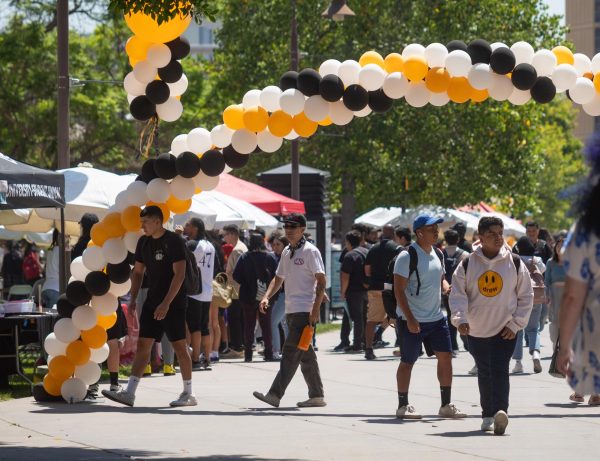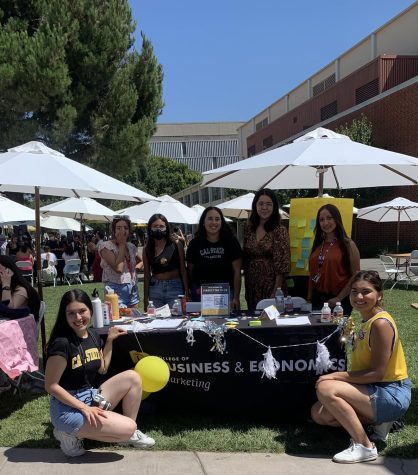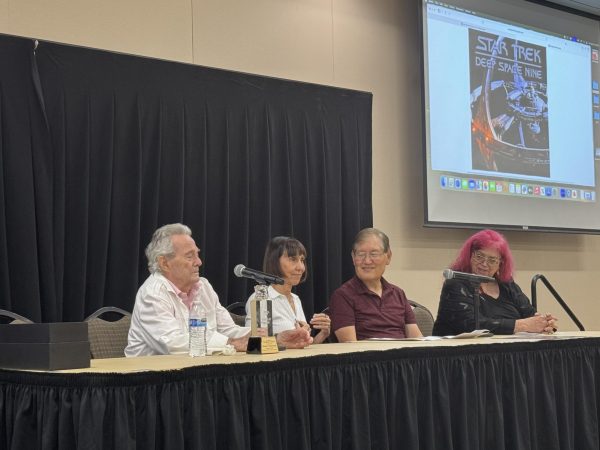Filipino club celebrates their kinship and cultural bonds through song and dance
Club highlights
Photo courtesy of the club’s Instagram.
The Filipino club attends a Clippers game for culture night.
Kalahi is Cal State LA’s Filipino Club, a cultural club focusing on Filipino American perspectives, beliefs and daily life.
What does it mean to be Filipino? For those in Kalahi, to be Filipino is to feel a sense of belonging, of being part of a family. Members of the club treat one another like siblings.
“It’s a very inclusive club,” said Mark Lorenzo, former Kalahi community chair. “You don’t necessarily have to be Filipino. We would love to welcome members of every background. It’s really more like a second family to me.”
Lorenzo held the position of Kalahi’s treasurer for a year before the pandemic started. Now, despite being technically “retired” from the board, he still partakes in club activities.
In Tagalog, Kalahi means “a sense of unity and togetherness,” according to Lorenzo.
Lorenzo hopes the club represents a place where people can belong together.
“Something common about Filipino families is that a majority of members are known to be close to each other,” Lorenzo said. “It’s pretty easy to fit into the club. It’s a second family. You learn more about other Filipino cultures and how other people were raised and about other Filipino Americans.”
“I think the concept of togetherness and family and that bond, that’s what it means to be Filipino,” said Joseph Nario, the external chair of Kalahi.
Nario is in charge of maintaining relationships with other Filipino organizations. He goes to events that Cal State Fullerton, UC Riverside and other nearby colleges put on.
“We keep in contact for events that we have and for events that they have,” Nario said. “We keep that network maintained.”
Summer Szeto, who served her first board position last year, is the current vice president of Kalahi.
“Due to the pandemic, we had to do an online PCN (Pilipino Cultural Night),” Szeto said. “We did a whole YouTube video where we had performances of singing and musical instruments that we recorded and an artistic drawing instead of a play. We did a storybook of drawings that people voiced-over.”
In Kalahi, club members can look forward to various activities, whether it’s explorations of Filipino history, cultural celebrations and more.
“We’re basically informing old and new members about Filipino culture, just anything from historical times and going back to our roots to modern times,” Nario said. “Sometimes we cover Filipino artists or we can go as far back as Filipino independence. Sometimes we do Filipino scary stories during Halloween.”
Szeto said that Kalahi also does a lot of social events, such as boba runs and thrifting.
The club hosts other events such as its annual Filipino cultural night. Since a good number of the members like to sing and dance, Kalahi rehearses traditional Filipino dances like Tinikling, a dance that involves stepping over and between two bamboo poles, and Pandanggo Sa Ilaw, a dance involving candles.
Currently, the club has about 40 to 50 members, according to Szeto. Past alumni of the club sometimes show up again, and people occasionally bring guests to the events.
“If you want to be a paid member, we do have dues that you need to pay as well as membership forms you need to fill out,” Szeto said. “However, everyone’s welcome to come to our general meetings.”
Membership fees for the spring semester cost around $15 for returning members and $20 for new members.
Kalahi will be having a spring banquet on May 13. Members of the club are encouraged to perform for the banquet.
Kalahi is perfect for those who are looking for a Filipino perspective, even if you aren’t Filipino yourself.

Brian Lai is an English major, and an UT reporter that writes mostly about Calstate LA’s campus. He covers campus events, issues and highlights, and...











